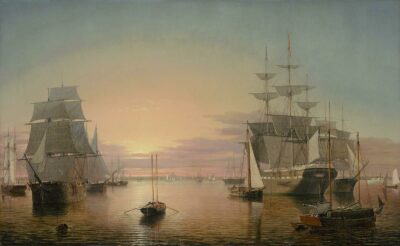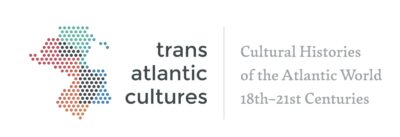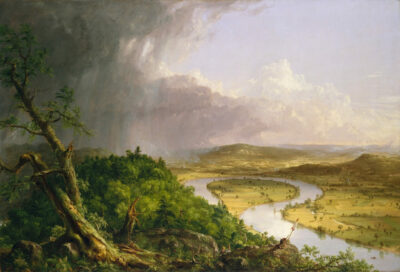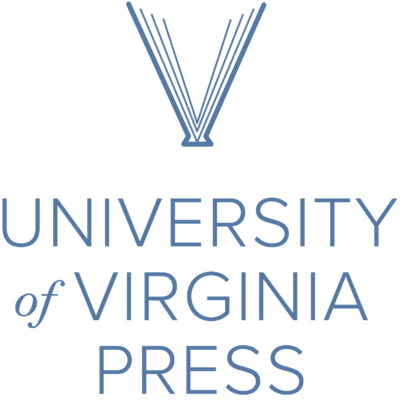
Boston Harbor, Fitz Henry Lane, 1850 (Museum of Fine Arts, Boston)
What a journey! It’s been a pleasure to travel with you all through four seasons of American intellectual history. On behalf of the entire program committee, we thank you for setting sail with us on Mondays and Tuesdays (and weekends!) at #USIH2020-#USIH2021. With our Nashville CFP right around the corner (now due 28 May
), we’re delighted to share word of our final three webinars. Registration is FREE, but it is required. Check out all the details below, and join the conversation.
 *SUNDAY, 11 APRIL 2021, 12PM EST*
*SUNDAY, 11 APRIL 2021, 12PM EST*
Transatlantic Cultures: Cultural Histories of the Atlantic World 18th-21st Centuries
Transatlantic Cultures’ connected history of the Atlantic region unfolds in a series of analytical essays exploring the multi-faceted cultural relations between Europe, Africa, and the Americas. It does so from a multidisciplinary perspective that brings together historians, anthropologists, sociologists, political scientists, musicologists, geographers, as well as scholars of literature, visual and performance arts, and cinema. Reflecting on current research trends, these essays examine circulations across and around the Atlantic in the context of cultural globalization, as well as the shaping of identities and borders that have played a part in defining and redrawing cultural areas since the 18th century. Panelists include Richard Cándida Smith (University of California, Berkeley), Anaïs Fléchet (Université de Versailles Saint-Quentin-en-Yvelines), Moustapha Sall (Université Cheikh Anta Diop, Dakar), Gabriela Pellegrino Soares (Universidade de São Paulo), and Cyrille Suire (Université de Versailles Saint-Quentin-en-Yvelines). REGISTER HERE.

The Oxbow (View from Mount Holyoke, Northampton, Massachusetts, after a Thunderstorm), Thomas Cole, 1836 (The Metropolitan Museum of Art)
TUESDAY, 13 APRIL 2021, 7PM EST
Living, Knowing, Sharing: Introducing Traditional Ecological Knowledge to Scholars and Students
Recent conflicts over land and resource management in the United States and abroad have highlighted the need to center Indigenous thought and practices in discussions of space, place, and belonging. This panel introduces Traditional Ecological Knowledge (TEK) as a way knowing and adapting to the landscape and its resources passed through generations. Roundtable guests will speak broadly to how TEK can inform scholarly research, teaching, and its applications such as land management and food sovereignty. Panelists include Jason Herbert (University of Minnesota), Patty Loew (Northwestern University), Marty Reinhardt (Northern Michigan University), Lea Zeise (United South and Eastern Tribes, Inc.), and Jewel Parker (University of North Carolina-Greensboro). REGISTER HERE.
 MONDAY, 19 APRIL 2021, 7PM EST
MONDAY, 19 APRIL 2021, 7PM EST
Revolution and Counterrevolution in the 1790s
Co-Sponsored by University of Virginia Press
How did revolutions and counterrevolutions shape the 1790s? New scholarship from the University of Virginia Press helps us to reconsider this pivotal period in early American intellectual history. Join a diverse group of scholars in dialogue, including Charlene Boyer Lewis (Kalamazoo College), Patrick Griffin (University of Notre Dame), Sandra Moats (University of Wisconsin-Parkside), and Marlene Daut (University of Virginia). REGISTER HERE.

0